Related Research Articles
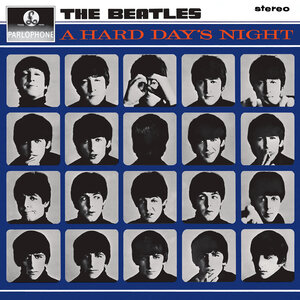
A Hard Day's Night is the third studio album by the English rock band the Beatles, released on 10 July 1964 by Parlophone, with side one containing songs from the soundtrack to their film of the same name. The American version of the album was released two weeks earlier, on 26 June 1964 by United Artists Records, with a different track listing that included selections from George Martin's film score. In contrast to the Beatles' first two albums, all 13 tracks on A Hard Day's Night were written by John Lennon and Paul McCartney, showcasing the development of their songwriting partnership.

"Helter Skelter" is a song by the English rock band the Beatles from their 1968 album The Beatles. It was written by Paul McCartney and credited to Lennon–McCartney. The song was McCartney's attempt to create a sound as loud and dirty as possible. It is regarded as a key influence in the early development of heavy metal. In 1976, the song was released as the B-side of "Got to Get You into My Life" in the United States, to promote the Capitol Records compilation Rock 'n' Roll Music.

Run Devil Run is the eleventh solo studio album by Paul McCartney, released in 1999. It features mostly covers of both familiar and obscure 1950s rock and roll songs, along with three original McCartney compositions written in the same style, including the title track, making it the second McCartney covers album, after his Russian cover album. As his first project following first wife Linda's death in 1998, McCartney felt the need to get back to his roots and perform some of the music he loved as a teenager. On 14 December 1999, McCartney returned to the Cavern Club stage to play a set publicising the new album.
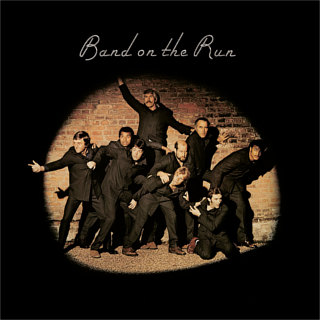
Band on the Run is the third studio album by the British–American rock band Paul McCartney and Wings, released by Apple on 30 November 1973. It was McCartney's fifth album after leaving the Beatles in April 1970. Although sales were modest initially, its commercial performance was aided by two hit singles – "Jet" and "Band on the Run" – such that it became the top-selling studio album of 1974 in the United Kingdom and Australia, in addition to revitalising McCartney's critical standing. It remains McCartney's most successful album and the most celebrated of his post-Beatles works.
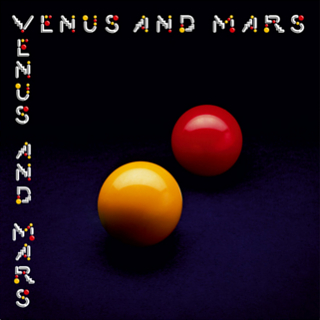
Venus and Mars is the fourth studio album by the British–American rock band Wings. Released in May 1975 as the follow-up to Band on the Run, Venus and Mars continued Wings' run of commercial success and provided a springboard for a year-long worldwide tour. The album was Paul McCartney's first post-Beatles album to be released worldwide by Capitol Records rather than Apple.

Use Your Illusion is the name of two releases by American rock band Guns N' Roses: a 1998 compilation album, drawing from the Use Your Illusion I and II studio albums featuring songs without explicit lyrics, and a 2022 box set anniversary edition of both albums.

MPL Communications is the umbrella company for the business interests of Paul McCartney and was established in 1969. In addition to handling McCartney's post-Beatles work, MPL is one of the world's largest privately owned music publishers through its acquisition of other publishing companies.

"You've Got to Hide Your Love Away" is a song by the English rock band the Beatles. It was written and sung by John Lennon and released on the album Help! in August 1965.
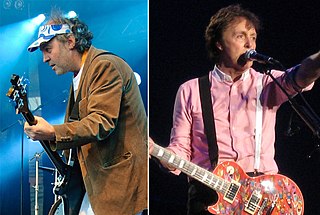
The Fireman is an English experimental music duo of Paul McCartney and Youth formed in 1993. Their music catalogue ranges from rock to electronica, evolving over more than two decades and three albums. Although officially anonymous until 2008 with the release of the album Electric Arguments, the group members' names had been known to the public since soon after the release of their first album.

"Jet" is a song by Paul McCartney and Wings from their third studio album Band on the Run (1973). It was the first British and American single to be released from the album.

"Band on the Run" is a song by the British–American rock band Paul McCartney and Wings, the title track to their 1973 album Band on the Run.

"Getting Closer" is a rock song from the British rock band Wings, Paul McCartney's post-Beatles band. The song was released on the album Back to the Egg.
Oobu Joobu was a radio show created, directed and presented by Paul McCartney. It was described by McCartney as "wide-screen radio", and consisted of McCartney hosting a mix of various demos, live tracks, outtakes, rehearsals, and other unreleased material from his solo career, plus tracks by other artists that served as inspiration for McCartney, all wrapped around behind-the-scenes stories and 'chat'. The program aired in 1995 on the American radio network Westwood One, running for 15 episodes broadcast between May and September. The show's name was inspired by a BBC production of Alfred Jarry's Ubu Cocu.
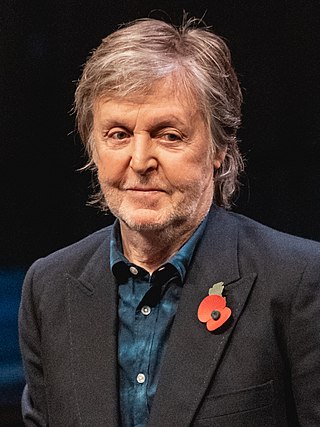
Sir James Paul McCartney is an English singer, songwriter and musician who gained worldwide fame with the Beatles, for whom he played bass guitar and shared primary songwriting and lead vocal duties with John Lennon. One of the most successful composers and performers of all time, McCartney is known for his melodic approach to bass-playing, versatile and wide tenor vocal range, and musical eclecticism, exploring genres ranging from pre–rock and roll pop to classical, ballads, and electronica. His songwriting partnership with Lennon is the most successful in modern music history.
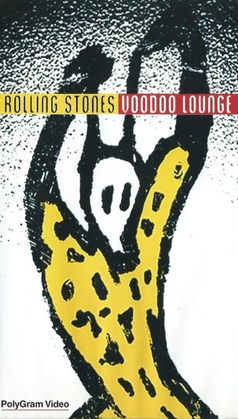
Voodoo Lounge Live is a concert video by the rock band the Rolling Stones. It was filmed on 25 November 1994 at Joe Robbie Stadium in Miami Gardens, Florida during the Voodoo Lounge Tour. The concert was broadcast as a pay-per-view special.

"Zoo Gang" is an instrumental song composed by Paul and Linda McCartney and performed by Paul McCartney and Wings.

Give My Regards to Broad Street is a 1984 British musical-drama film directed by Peter Webb. It stars Paul McCartney, Bryan Brown and Ringo Starr. The film covers a fictional day in the life of McCartney, who wrote the film for the screen, and McCartney, Starr and Linda McCartney all appear as themselves. Despite Give My Regards to Broad Street being unsuccessful, both financially and critically, its soundtrack album sold well. The title is a take on George M. Cohan's song "Give My Regards to Broadway" and refers to London's Broad Street railway station. It was the first appearance for McCartney in a non-documentary feature film since Help! (1965) and is currently his last starring role in a feature film.
"Run Devil Run" is a 1999 original Paul McCartney composition written in a Chuck Berry style as the title track of his 1999 covers album Run Devil Run. It is one of three original songs on the 15-song album, along with "Try Not to Cry", and "What It Is", and was also released as a promotional 7" vinyl single.

Got Back is an ongoing concert tour by English musician Paul McCartney. The tour started on 28 April 2022 at the Spokane Arena in Spokane, United States, and is set to end on 19 December 2024 at the O2 Arena in London, England. The tour is McCartney's first following the COVID-19 pandemic that resulted in the cancellation of a planned European leg of his Freshen Up tour in 2020, which included a planned performance at Glastonbury Festival. McCartney performed at Glastonbury on 25 June 2022, as a conclusion to the first leg of the Got Back tour.
References
- ↑ Austin, San Antonio & the Hill Country . Lonely Planet. 2004. p. 163.
It's basically a religious and Santeria superstore (mixed with a bit of voodoo), selling items to rid you of the problem of your choice: Get-Rich candles; Do-As-1-Say floor wash; Jinx Removal air-freshener; Run-Devil-Run and Get-out-of-Jail oil; ...
- ↑ Miles Corwn (20 April 1992). "A Botanica Is Ready to Help When Evil Spirits Come Calling". LA Times.
Limon buys a tiny bottle of oil with "Go Away Evil" emblazoned on the label to sprinkle on her neighbor's doorstep. ... She buys a bottle of "Run Devil Run" bath oil for her son, to keep gang members away.
- ↑ Howard Sounes (2010). Fab: An Intimate Life of Paul McCartney. p. 496. ISBN 9780007237067.
... most of them obscure, with a couple of newly written tracks including the title song, 'Run Devil Run', inspired by a voodoo remedy Paul had picked up in Atlanta to ward off evildoers, thieves and liars.